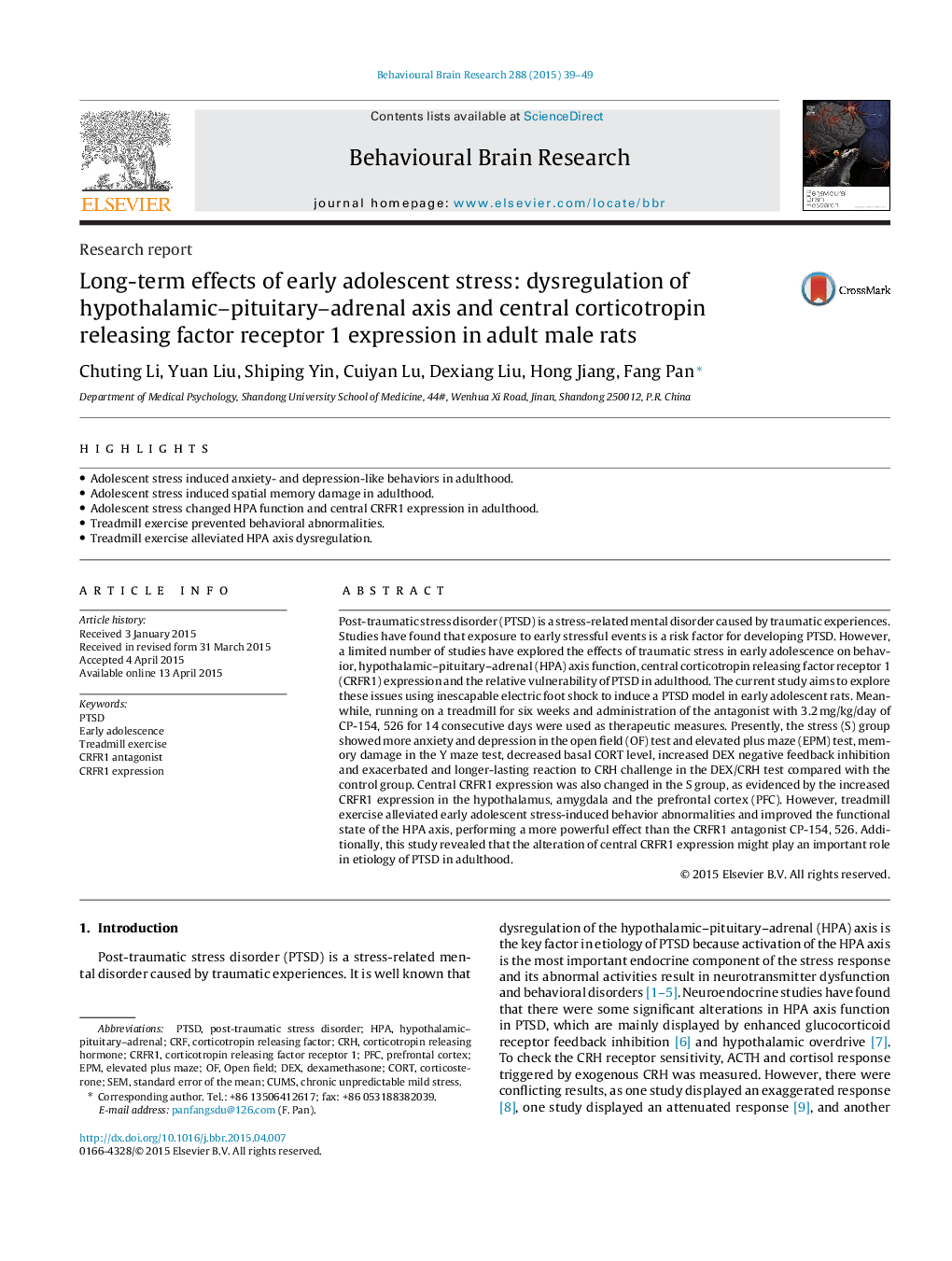| Article ID | Journal | Published Year | Pages | File Type |
|---|---|---|---|---|
| 6256701 | Behavioural Brain Research | 2015 | 11 Pages |
â¢Adolescent stress induced anxiety- and depression-like behaviors in adulthood.â¢Adolescent stress induced spatial memory damage in adulthood.â¢Adolescent stress changed HPA function and central CRFR1 expression in adulthood.â¢Treadmill exercise prevented behavioral abnormalities.â¢Treadmill exercise alleviated HPA axis dysregulation.
Post-traumatic stress disorder (PTSD) is a stress-related mental disorder caused by traumatic experiences. Studies have found that exposure to early stressful events is a risk factor for developing PTSD. However, a limited number of studies have explored the effects of traumatic stress in early adolescence on behavior, hypothalamic-pituitary-adrenal (HPA) axis function, central corticotropin releasing factor receptor 1 (CRFR1) expression and the relative vulnerability of PTSD in adulthood. The current study aims to explore these issues using inescapable electric foot shock to induce a PTSD model in early adolescent rats. Meanwhile, running on a treadmill for six weeks and administration of the antagonist with 3.2Â mg/kg/day of CP-154, 526 for 14 consecutive days were used as therapeutic measures. Presently, the stress (S) group showed more anxiety and depression in the open field (OF) test and elevated plus maze (EPM) test, memory damage in the Y maze test, decreased basal CORT level, increased DEX negative feedback inhibition and exacerbated and longer-lasting reaction to CRH challenge in the DEX/CRH test compared with the control group. Central CRFR1 expression was also changed in the S group, as evidenced by the increased CRFR1 expression in the hypothalamus, amygdala and the prefrontal cortex (PFC). However, treadmill exercise alleviated early adolescent stress-induced behavior abnormalities and improved the functional state of the HPA axis, performing a more powerful effect than the CRFR1 antagonist CP-154, 526. Additionally, this study revealed that the alteration of central CRFR1 expression might play an important role in etiology of PTSD in adulthood.
